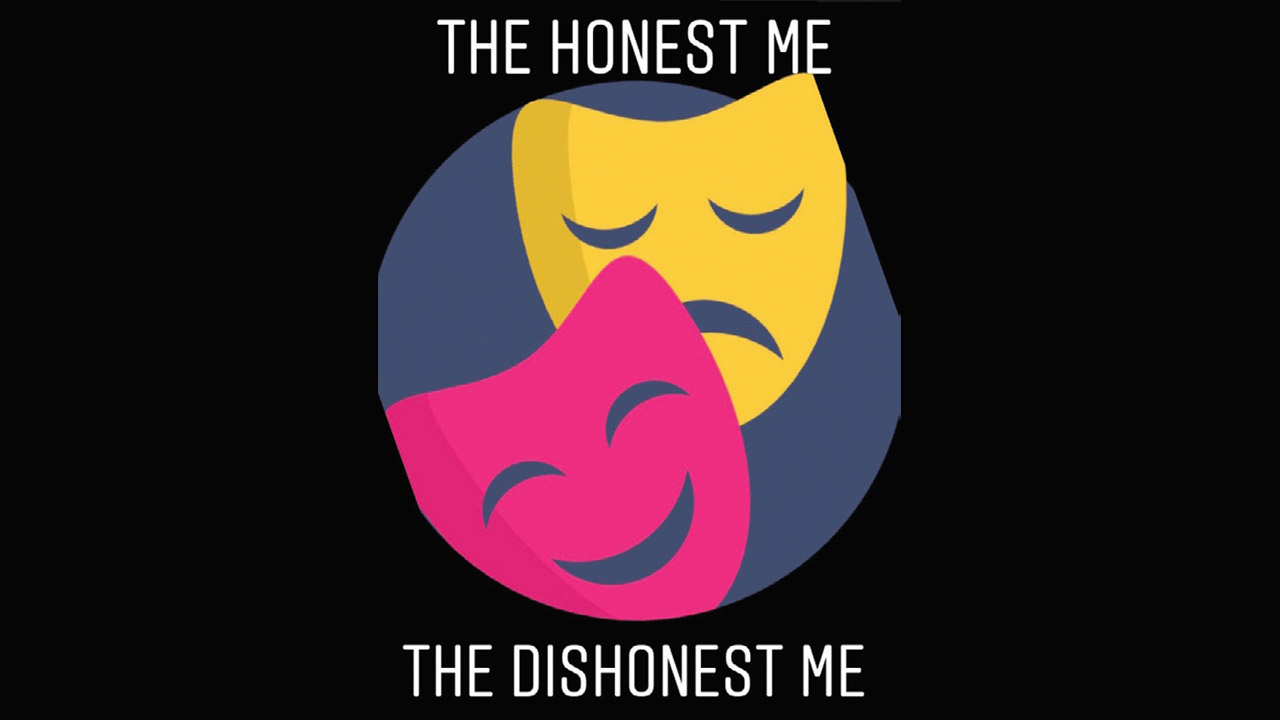To lie or not to lie: Honesty might not be the best policy
 CREDIT: JUVERIYA MOMBASAWALA
CREDIT: JUVERIYA MOMBASAWALASocial media has us wearing a mask too thick to face the real world.
“I don’t like to be lied to.”
Have you heard or spoken these words before? Almost every human being in this world uses this phrase in their life multiple times. But on the contrary, everyone lies even if they accept it or not. No one can claim that they have never lied before, and still everyone likes to believe that they don’t lie and don’t prefer to be lied to.
But have you ever thought if you wanted radical honesty from yourself and others in life? Come to think of it, the concept of radical honesty is more complicated and difficult to achieve than it appears to be.
Radical honesty is talking about what you notice without distorting it according to Brad Blanton, founder of the Radical Honesty improvement program. Blanton started this concept and practices radical honesty in his day-to-day life. He believes in speaking the truth without sugar-coating it or covering your emotions with white lies to the people you are close to, even if your words hurt them, to develop a deep connection in life rather than having relationships with dishonest opinions about each other.
In 2015, Laura Turley, a convert to radical honesty philosophy, addressed the changes in her life in an interview with CBC radio show, IDEAS. She said that most of her friends and her partner did not handle the change very well, and a few of her friends even denied her to be radically honest with them.
A radically honest world in an informal and formal setting is desirable, but does not seem very practical. A concept can be right in one’s eye while wrong in another’s and with human rights, everyone is entitled to their own opinions. A stronger personality will dominate with their opinions and the weaker might not get a chance to voice it.
With a radically honest world, there would be very minimal appropriateness in conversations and hurting feelings would be a common norm. Along with that, there could be a major hike in depression and suicide cases, as taking 100 per cent honesty is not everyone’s cup of tea.
The question is, if telling a lie is a common norm why doesn’t everyone lie more often? A human being is manufactured in a manner that wants to use the least recourses to get any work done, and this concept applies to speak the truth or lies in real life as well.
According to David Livingstone Smith, professor of philosophy at the University of England, the human mind consumes more energy to lie than it does to speak the truth. Therefore, it is natural for us to speak the truth most of the time.
A radically honest world would be a different place to live in, but it would take a high level of understanding and open-mindedness from everyone in the world, which is hard to achieve.
However, incorporating a little more honesty in our lives would help us make stronger bonds with people you care about. In the world of social media, everyone is wearing a mask on their faces to fit in, leading us to lose touch with real connections. The ability to accept each other for who we are is vanishing, but this can be preserved with incorporating more honesty in life.
This weekend, think about what radical honesty means to you and evaluate your life with some soul searching and self-care.















